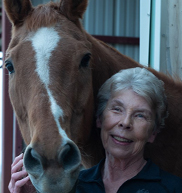Pat Stuart
Newspaper Columns

When we look back on the Covid-19 pandemic,
our memories will likely be categorized as good or bad depending on how the last few days of our sequestration play out.
That’s a fact.
Or that’s what dozens of studies say.
Take pain. Why can we remember an excruciatingly painful event as “not so bad?” Or, “really bad but … .” Like childbirth.
Intellectually, a new mom knows just how horrible it was. But, as her arms hold a piece of herself, a new scrap of humanity, her mind replaces the agony with a type of ecstasy.
Over and over studies shows that what comes last dominates our recollection. More, we apply the same flexibility to groups of memories.
Think about both short and long events—say a football game and season. The first half was horrible; the second great. We might say, “What a game!” Or about the season, “Remember that last game … !”
Even an Entire Lifetime
Take an entire lifetime of experiences. Say that you know your deceased grandmother had a sad childhood but was very happy in her final years. You might say, “Overall, she had a good life.” Or the reverse. A neighbor captained his high school football team and married the prom queen, but she left him when their youngest died, and he ended up broke and an alcoholic. “Poor man.”
This trait of ours has very practical applications. Our memories and, therefore, our willingness to repeat Inherently painful procedures—take colonoscopies—can be influenced by tapering the pain at the end of the procedure. No matter how bad the beginning, if the end is “not so bad,” that’s the way we’ll remember it.
Weird.
The practical applications extend right through our lives. You would think that no one, having survived a fire, would run into a burning building and risk becoming a crispy critter a second time. But firemen do it regularly. Our adaptable memories help them, not minimize the danger, but make bearable recollections of rasping lungs or singed flesh.
Considering this reminded me of the many times I’ve come off a horse with results ranging from a concussion to broken bones and incidental damages like a perforated lung. Why, after the first time, would an otherwise reasonable person (which I generally believe myself to be) keep taking those chances?
My mind goes back to galloping down a grassy Maryland slope on a big gelding that a horse dealer had just dropped off. “Don’t know if he jumps or not,” the dealer had said, “but he sure is built for it.”
He was. So, in the spirit of “finding out,” I’d set out with a couple of mounted friends.
A bank loomed ahead with a ditch on the other side. We flew. Right into a heap at the bottom of the ditch. Hurt? Oh, yeah. Could have been killed? Maybe so.
No Surprise
But my friends were saying, “Wow! Can he jump!” No surprise, I remounted and almost bought that animal. As it is, thinking of him brings a smile all these years later.
What am I saying? When the Corona virus crisis dissipates, will we remember the woes or the final weeks as we adapted and survived? I expect it will be the latter.

Ideas and words to provoke thought…